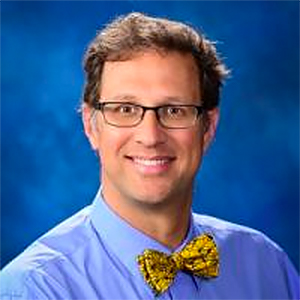Constructing narratives for teaching science
Brought to you by ASBMB Student Chapters
Few faculty members receive formal training in telling the stories of their science. Telling stories is crucial for writing grants, writing papers, and developing classroom lessons. Now more than ever, scientists need to be able to craft narratives for people who lack a scientific background. This event will feature a keynote address from Jay Hosler, a cartoonist and professor of biology at Juniata College.
For the chalk talks in this event, we are particularly interested in how your response to the pandemic will inform your teaching moving forward. What worked? What didn’t work? How will these practices change your teaching when instructors are back in the classroom face to face?
So, reflect on the past year, dig out a project you found challenging and helpful, and please share your successes and stumbles with your colleagues. Even if you don’t have a project that you are ready to present, please register for the meeting and join the conversation.
Keynote speaker

Jay Hosler
Professor of biology, Juniata College
Jay Hosler is the David K. Goodman, Jr. ’74 Endowed Chair in Biology at Juniata College by day and a scheming cartoonist at night. His diabolical plan is to secretly weave his love of science and natural world into thrilling tales of adventure. So far, the plan seems to be working. Unsuspecting readers often find themselves reading stories about creepy-crawly things and being drawn into the wondrous world right under their feet. His books have been translated into several languages, but he can only read the ones in English. He has even had the audacity to introduce story structure into his teaching, scaffolding biological content into socially relevant stories. When he’s not teaching biology or doodling insects, Jay likes to read comics and watch Godzilla movies. He lives in Pennsylvania with his queen and two other drones.
Resources
Are Comic Books an Effective Way to Engage Nonmajors in Learning and Appreciating Science?
Jay Hosler and K.B. Boomer, CBE-Life Sciences Education
Comic books employ a complex interplay of text and images that gives them the potential to effectively convey concepts and motivate student engagement. This makes comics an appealing option for educators trying to improve science literacy about pressing societal issues involving science and technology. In this paper, the authors report results from the first systematic assessment of how a science comic book can affect student learning and attitudes about biology.
The Tyranny of Content: “Content Coverage” as a Barrier to Evidence-Based Teaching Approaches and Ways to Overcome It
Christina I. Petersen, Paul Baepler, Al Beitz, Paul Ching, Kristen S. Gorman, Cheryl L. Neudauer, William Rozaitis, J. D. Walker, and Deb Wingert, CBE-Life Sciences Education
Instructors have inherited a model for conscientious instruction that suggests they must cover all the material outlined in their syllabus, and yet this model frequently diverts time away from allowing students to engage meaningfully with the content during class. This paper outlines the historical forces that may have conditioned this teacher-centered model as well as the disciplinary pressures that inadvertently reward it.
Houston, We Have a Narrative: Why Science Needs Story
Randy Orton
Ask a scientist about Hollywood, and you’ll probably get eye rolls. But ask someone in Hollywood about science, and they’ll see dollar signs: moviemakers know that science can be the source of great stories, with all the drama and action that blockbusters require. That’s a huge mistake, says Randy Olson: Hollywood has a lot to teach scientists about how to tell a story—and, ultimately, how to do science better. With "Houston, We Have a Narrative," he lays out a stunningly simple method for turning the dull into the dramatic.
A Next Generation Science Standards (NGSS) resource for K-12 science
The mission of the National Center for Case Study Teaching in Science at the University at Buffalo is to promote the development and dissemination of materials and practices for case teaching in the sciences. This website provides access to an award-winning collection of peer-reviewed case studies.
